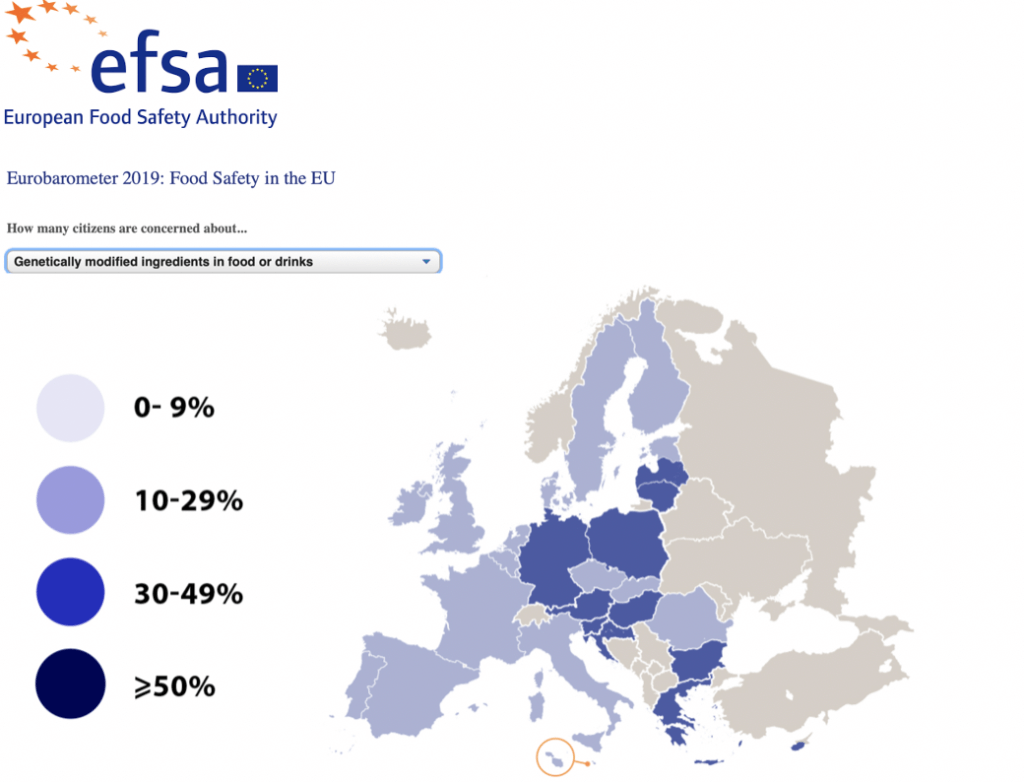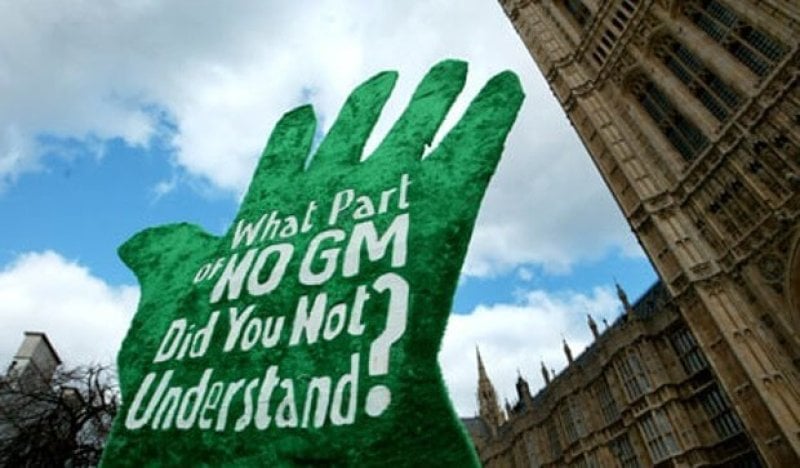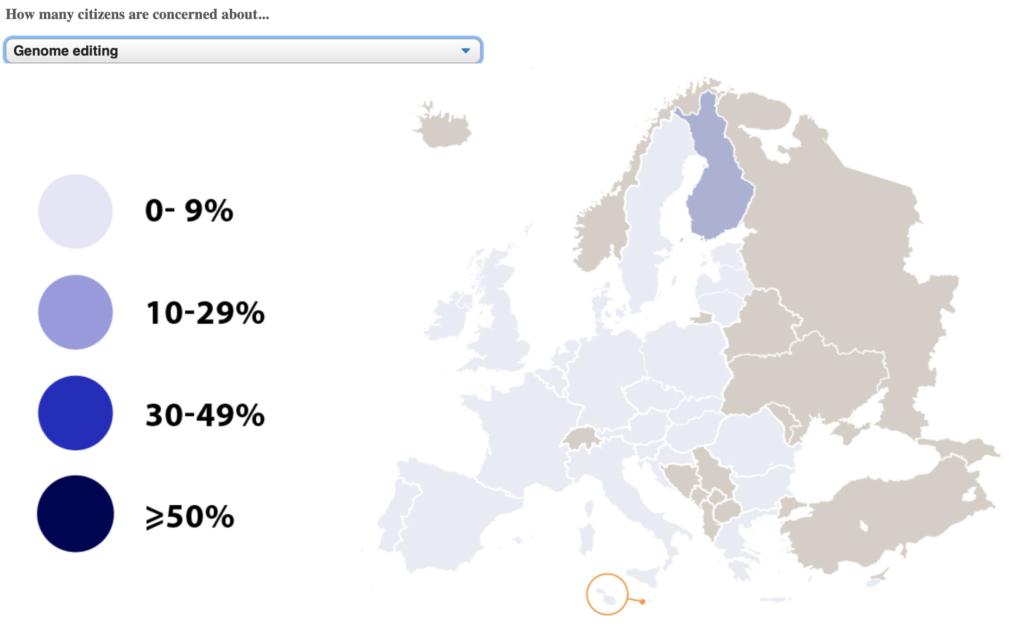A special Eurobarometer survey report on food safety was published [in June]. It shows once again that the regularly promoted narrative that “90% of Europeans are against GMOs” is bogus. ‘Genetically modified ingredients in food and drink’ are reported as having a comparatively low level of concern associated with them (27%) – number 8 of the 15 specified concerns on the list.
 Concern has more than halved compared to the last similar survey, published in 2010, when GMOs where reported as the 4th highest ranking concern (66%). Of all the issues of concern in the survey, genome editing is the one with the lowest concern (4%) and awareness (22%). Three issues surface most frequently in most Member States: antibiotics, hormones and steroids (44%), pesticide residues in food (39%) and food additives (36%).
Concern has more than halved compared to the last similar survey, published in 2010, when GMOs where reported as the 4th highest ranking concern (66%). Of all the issues of concern in the survey, genome editing is the one with the lowest concern (4%) and awareness (22%). Three issues surface most frequently in most Member States: antibiotics, hormones and steroids (44%), pesticide residues in food (39%) and food additives (36%).
Follow the latest news and policy debates on sustainable agriculture, biomedicine, and other ‘disruptive’ innovations. Subscribe to our newsletter.
Main Observations
- In reality, most Europeans hardly care about GMOs Even when prompted with a list of topics starting with GMOs, a mere 27 percent are concerned by GMOs. Only in one quarter of the member states, this level is over one third1. The regularly promoted narrative that “90 percent of Europeans are concerned about GMOs” is therefore bogus.
- Concern about GMOs has more than halved in nine years The level of reported concern has decreased enormously from 66 percent in 2010 to 27 percent in 20192. A very significant reduction occurred in each of the 28 Member States, and in nine, there was even a reduction by a factor of three or more3. The most concerned countries in 2019 (up to 45%) are less concerned even than the least concerned countries in 2010 (at least 46 percent).
- Genome Editing is the least of all concerns in the survey Out of the 15 topics in the survey, genome editing is the one people are clearly the least concerned about (4 percent), and it is also the topic that people are least aware of (22 percent).
Additional Observations
- In 2019, only six of the 28 member states cite GMOs as their top three most frequently mentioned concerns.
- The 2010 survey also contained an open question about possible food concerns. A mere 8 percent mentioned GMOs in their reply.
- In most EU countries, the level of concern about GMOs was clearly lower in 2005 than in 2010, but it is even much lower in 2019 than in 2005. The UK is a notable exception, where concern decreased both between 2005-10 and 2010-19.
See the full GMOinfo briefing here for detailed results and references by country.
This article originally ran at GMO Info as Most Europeans hardly care about GMOs and has been republished here with permission.
































